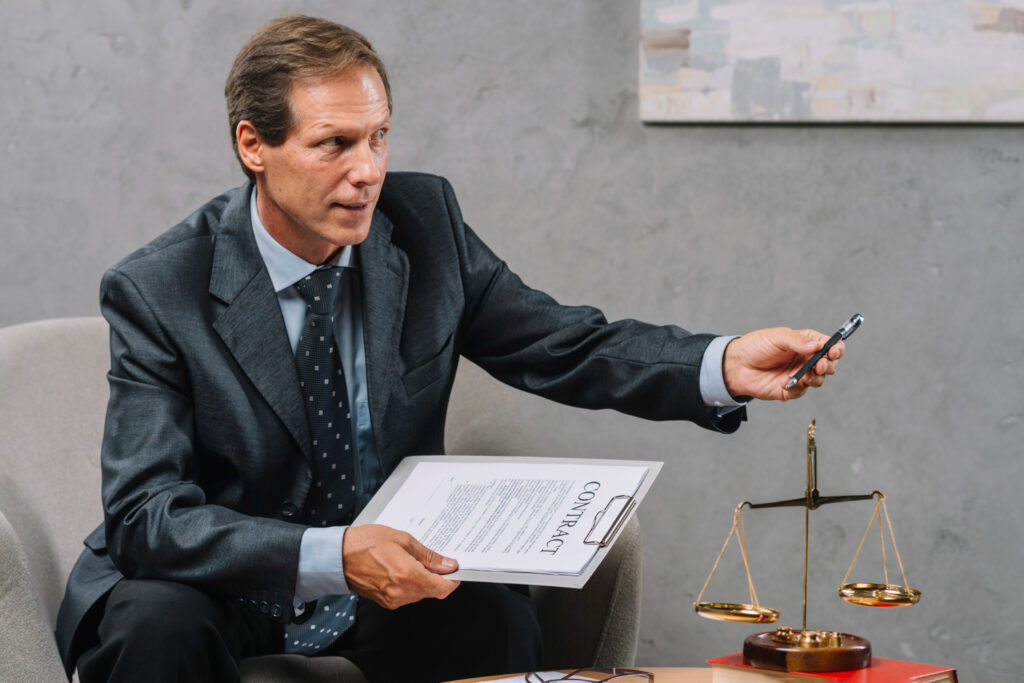Asset Protection: Are Your Assets Safe from Creditors and De-Facto Partners?
Are Your Assets Safe from Creditors and De-facto Partners? People typically consider asset protection when they embark on a high-risk job or business venture, or when entering a de-facto relationship, especially if they have previously endured a challenging breakup.
Whether you’re a salaried employee, an IT contractor, a medical professional, a legal practitioner, or a business owner embarking on the purchase of a significant asset in your investment journey, the last thing you want is for a worst-case scenario to undermine your financial stability. This concern unites professionals and business owners alike, leading them to a pivotal question: ‘How can I ensure my assets are protected?
According to a recent report by Domain, individuals typically require 4 to 7 years to save up a 20% deposit to enter the housing market. Yet, for those not settling for an entry-level home, accumulating the necessary deposit could span a decade. Once you’ve got your foot in the door of the property market, you might set your sights on expanding your portfolio with more properties, stocks, or maybe even a business. That’s a journey that can stretch well over ten years.
Now, imagine after all that time, effort, and sacrifice, it could all be wiped out in the blink of an eye due to some unforeseen event. That’s precisely why the concept of asset protection can’t be overlooked.
This article is the first in a two-part series where we delve into everything you need to know about asset protection. In the subsequent piece, we will explore various strategies to safeguard your wealth.
What is Asset Protection?
Asset protection is a strategic approach to safeguarding one’s wealth and assets from potential claims of creditors, lawsuits, or unforeseen financial threats. It involves a range of legal and financial mechanisms designed to protect assets from being seized or diminished in value due to legal judgments or financial liabilities. This can include the creation of trusts, the establishment of legal agreement, the structuring of business entities, and the implementation of insurance policies, among other strategies. The primary goal of asset protection is to create a robust legal barrier that ensures an individual’s or entity’s assets remain secure and intact, even in the face of legal challenges or economic downturns, thereby preserving wealth for future use or generational transfer.
What am I protecting?
If you’re reading this and wondering about asset protection, chances are you either have some valuable assets you’re looking to shield or you’re planning to build up your assets. Assets includes, but is not limited to, real estate properties, investment accounts, business equity, personal savings, and other valuable assets. The goal is to employ legal structures and strategies to create barriers that prevent creditors, litigants, or unforeseen circumstances from accessing and diminishing these assets,

Asset Protection Risks for Business Owners
As a business owner, your main asset protection concern revolves around the risk of personal bankruptcy or your business facing financial difficulties. If your business can’t pay its debts on time, you might face legal actions from creditors aiming to shut down your business and use its assets to cover the debts. Moreover, if you’ve personally guaranteed any of your business debts, your own assets could be at risk too. Creditors might have claims against your personal assets, especially if they’re registered under the Personal Property Securities Register (PPSR).
Unexpected events pose another significant risk. Things like accidents, natural disasters, or health issues can bring unexpected expenses and legal troubles. Without adequate insurance, such incidents could lead to financial ruin, as you might lose valuable assets or face costly lawsuits. These situations not only drain your finances but also consume your time and attention, diverting you from managing your business and personal affairs effectively.
Asset Protection Risk for Non-Business Owners
Asset protection is not only a concern for business owners but can also be crucial for individuals in various other circumstances. Here’s a scenario that illustrates how an individual who is not a business owner might need to consider asset protection:
Jayden, an engineer with a stable job and personal assets including a home, savings, and investments, faces a significant asset protection risk following a car accident in heavy rain where he inadvertently runs a red light, colliding with another vehicle. The accident results in substantial injuries to the other driver, a young professional, who subsequently sues John for negligence, seeking damages that far exceed Jayden’s standard auto insurance policy limits for medical bills, lost wages, and pain and suffering. This legal action places Jayden’s personal assets at considerable risk, as he could be personally liable for any court-awarded damages beyond his insurance coverage, potentially forcing him to liquidate assets.
This scenario demonstrates that even individuals not in traditionally high-risk professions can face situations where their personal assets are at risk. Unexpected events, such as a car accident, can lead to liability that exceeds standard insurance coverage, highlighting the importance of proactive asset protection planning for the general public.

When Should I Think about Asset Protection?
Many people, when consulting tax and legal experts, often ask if it’s necessary to think about safeguarding their assets right from the start. The answer isn’t straightforward because it really depends on your individual activities and future plans.
The initial phase of asset protection actually begins with acquiring the asset. Initially, it might seem simplest to hold the asset in your own name, and later on, you might think about implementing strategies for asset protection, such as transferring the asset to a Trust or employing a Gift-Loan back strategy. However, be aware that once the asset is in your name, transferring it can become costly.
Take Ben’s story, for example. He bought an investment property under his name a decade ago. Fast forward three years, he established his business within a Trust structure and has since become a successful entrepreneur. Recently, facing a potential threat, Ben has grown concerned about protecting his assets. Despite knowing his personal properties are not directly at risk, he’s considering transferring the property to his wife’s name, who is less exposed to business risks. However, this move would incur significant costs, including stamp duty and capital gains tax based on the property’s current market value. This illustrates how asset protection can become more expensive and complicated if not planned for from the beginning.
I am currently in a de-facto relationship. How can I ensure that, in the event of my estrangement from my partner, my children will inherit my property?
When people fall deeply in love, the last thing they want to think about is the potentially grim end of their relationship and the fate of assets gathered before or during their time together. Caught up in the whirlwind of romance, the thought of engaging in uncomfortable conversations about asset protection seems not just out of place, but almost a betrayal of the love they share.
Yet, the harsh reality often dawns too late for many; relationships, as fragile as they can be, sometimes unravel, leaving a trail of pain and suffering. This heartache is magnified manifold when the lack of foresight regarding asset protection comes to light, turning what was once a shared dream into a battleground of loss and regret.
De facto relationships are like informal partnerships without the formal start of a marriage or a clear end like a divorce. Often, these relationships are not officially recorded, and disagreements can arise about when or if such a relationship has ended, which can lead to complicated legal issues.

As people start new relationships later in life, they might already have significant wealth. Challenges such as health issues, including dementia, can complicate these relationships further, especially if someone with legal authority, like a Power of Attorney, gets involved. Australian courts have been working to clarify when a de facto relationship is considered to have ended, especially in complex cases, but decisions are made based on the unique details of each situation.
For clarity and protection regarding your relationship status, assets, and potential property settlements, it’s crucial to consult with a family lawyer. To safeguard your assets before any relationship breakdown, consider a Binding Financial Agreement, which offers control and clear terms for asset division, aligning with family law, estate planning, and elder law considerations. If you’re worried about your parent’s financial security, legal advice can also address these concerns, ensuring informed decisions for their well-being.
In conclusion, understanding and implementing asset protection strategies is not just prudent; it’s essential for safeguarding your financial future against unforeseen threats and legal challenges. Whether you’re a business owner facing potential risks from creditors or an individual aiming to protect your hard-earned assets from personal liabilities, taking proactive steps towards asset protection can make a significant difference.
However, navigating the complexities of asset protection and tax planning requires expertise. It’s crucial to make informed decisions tailored to your unique circumstances and goals. That’s where speaking to a specialist can make all the difference. Investax Tax and Structure Specialists are well-equipped to offer you personalised advice, ensuring your asset protection strategies are robust and effective.
Don’t wait for a worst-case scenario to realise the importance of safeguarding your assets. Take action today to secure your financial legacy. Contact an Investax Tax and Structure Specialist to discuss your tax planning and future asset protection strategies. Together, we can build a shield around your assets, giving you peace of mind and the freedom to focus on what matters most to you.
Pro Tips
- Start Early: Begin considering asset protection strategies as soon as you start acquiring significant assets. The earlier you implement these measures, the more options you’ll have and the lower your risk will be.
- Diversify Asset Protection Strategies: Don’t rely on a single asset protection method. Combine legal structures (like trusts or business entities), insurance policies, and other financial mechanisms to create multiple layers of protection.
- Seek Professional Advice: Asset protection can be complex, involving legal and financial considerations. Consult with your accountants, who can provide both tax planning and asset protection strategies, to ensure you are both effective and compliant with current laws.
- Review Regularly: As your assets grow and your personal situation changes, your asset protection needs will evolve. Regularly review and adjust your Asset protection strategies to ensure they remain effective.
- De-facto Relationship – Engage with your family attorney to discuss your de-facto relationship and the strategic preparation of a binding financial agreement.
Reference
https://mk.com.au/de-facto-relationships-future-proofing-your-assets/





